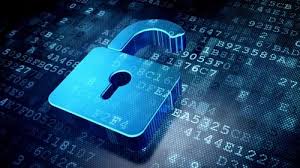A Blockchain Security Audit is a comprehensive assessment of the internal workings of a blockchain network with the goal of finding weaknesses that cybercriminals might exploit. It entails closely examining every facet of the network, including the resilience of the network infrastructure and smart contracts.
Experts in cybersecurity examine the blockchain’s code in detail during a security audit. The main goal is to identify and address any vulnerabilities in the system. It still can’t ensure complete safety, even though it helps protect user funds.
Projects can approach the highest level of security with the assistance of a qualified auditor. But the benefits of a blockchain security audit go far beyond just finding and resolving issues.
Organisations can gain the trust of their users and position themselves as industry leaders by taking action against potential threats. In today’s more connected world, trust is more valuable than ever, and gaining it starts with a well-executed security audit.
What Is the Significance of a Blockchain Security Audit?
Blockchains can be extremely tamper-proof and transparent, but security risks still exist. Unknown security flaws in projects have the potential to be exploited, resulting in significant asset losses. Security audits become crucial at this point.
1.Preventing Exploits and Attacks: Finding vulnerabilities and fixing them before attackers can exploit them is the main goal of security audits in blockchain projects. These audits serve as a preventative measure against possible fraud or hacking.
2.Maintaining Code Integrity: Since blockchain projects are frequently open-source, everyone can view the code. Although this encourages openness, it also makes any vulnerability in the code readily available to hackers.
3.Developing User Trust: The acceptance and success of blockchain projects depend heavily on user trust. Users must have faith in the security of their data and transactions. Blockchain projects show their dedication to user safety by conducting regular security audits and resolving found vulnerabilities, which fosters trust.
4.Regulation Compliance: As blockchain technology gains traction, regulatory organisations are establishing more stringent guidelines for data security and protection. Blockchain projects are guaranteed to adhere to these changing regulations through the conduct of security audits.
Long-Term Stability and Reliability: Recurring security audits contribute to a blockchain project’s continued stability and dependability. They make sure that the security precautions in place are updated and strengthened in line with the project’s growth.
Where to get a Blockchain Security Audit
The current trend in cybersecurity is moving away from “testing in production” and towards onboarding third-party auditing firms to thoroughly examine the codebase prior to launch. As a result, a lot of Web 3.0 cybersecurity businesses have increased the range of services they offer by adding things like bug bounty programmes and on-chain monitoring products.
For example, Hacken.io offers auditing in addition to post-deployment security monitoring products like Hacken Extractor. It also runs one of the biggest bug bounty programs on Web3 called HackenProof with 20k+ curated engineers. Such additional services offer extra support and assistance to projects based on their security needs.
How to Choose a Blockchain Auditing Firm
Examine the past audits of a Web 3.0 auditing firm before choosing one. The calibre of the auditor is demonstrated by the scope and reputation of their audited projects. This is just due to the fact that hackers are more likely to target well-known projects.
Although a lot of auditors are capable of auditing Ethereum smart contracts, not all of them are knowledgeable about other blockchains, such as Solana, Polygon, Avalanche, Fantom, and BNB. The different architectures of chains that are compatible with EVMs give rise to the complexity. Some businesses might not have as much experience as Hacken.io, which focuses on three programming languages: Move, Solidity, and Rust.
Depending on what they agree upon with their clients, different auditors may conduct audits that are more or less detailed. Though they are more expensive and take longer, more thorough audits are preferable.
In light of this, report quality is also crucial. A comprehensive audit report should list every problem that was found during the inquiry and confirm whether the project was able to fix it afterwards. It should also include doable recommendations for reducing the risks. Even though smart contract audit reports are technical in nature, they are more effective when they are presented in an organised and clear manner.
In conclusion,Auditing blockchain security is an important task that needs to be handled carefully. It assists businesses in identifying possible weaknesses and determining whether they satisfy the industry’s rising security requirements. In addition, the community’s and potential investors’ trust is greatly increased when audits are performed by reputable firms.

